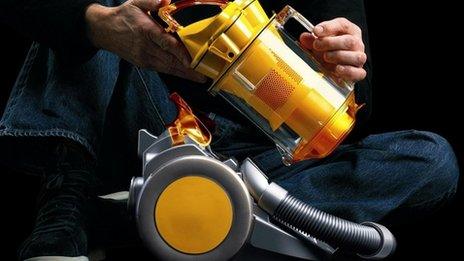Dyson loses EU energy labels claim
- Published
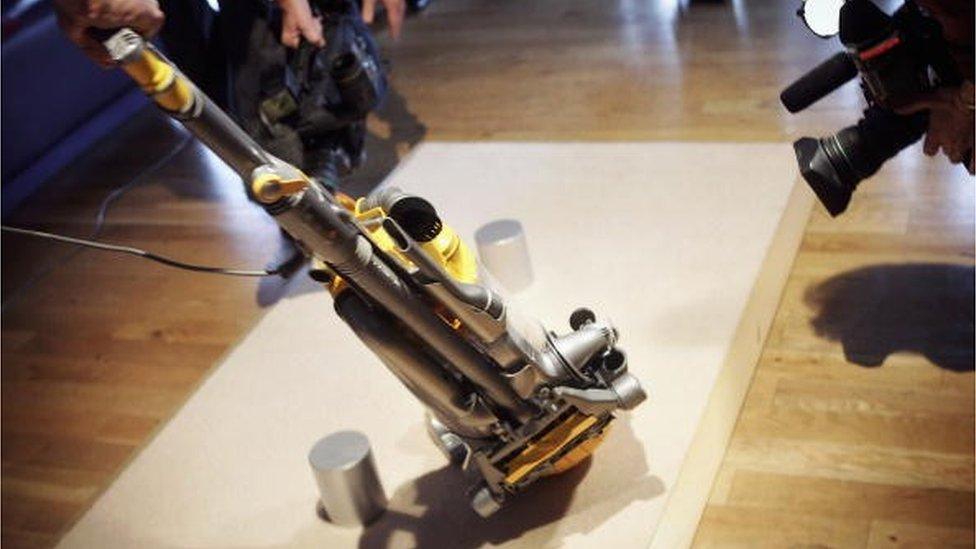
Vacuum cleaner manufacturer Dyson has lost its bid to change European energy labelling laws.
The company's founder, Sir James Dyson, argued vacuum cleaners were only tested when they were empty of dust.
He claimed that meant the tests misled "consumers on the real environmental impact of the machine they are buying".
In separate legal actions, the UK firm has claimed some rival vacuum cleaners are achieving misleadingly good ratings in tests.
The EU's General Court dismissed Dyson's action "in its entirety" because the company - best known for its bagless vacuum cleaner - had failed to show there were more reliable and accurate tests.
It said: "Dyson states that the regulation misleads consumers because the cleaning performance is tested only when the vacuum cleaner's receptacle is empty and not during use.
"The court acknowledges that the suction performance and energy efficiency of a vacuum cleaner with a dust-loaded receptacle will be reduced due to dust accumulation.
"It observes, however, that the [European] Commission could not use tests conducted on the basis of a dust-loaded receptacle, as they are not reliable, accurate and reproducible, as required by the regulation."
The court also dismissed Dyson's claim that current EU energy labelling laws "discriminates" in favour of bagged vacuum cleaners.
A Dyson spokeswoman said it was "deplorable" that the ECJ "endorses tests that don't attempt to represent in-home use, and we believe this is causing consumers to be misled."
The company added: "By this judgment, the ECJ has given its support to unrepresentative tests devised by the Commission with a small group of European manufacturers which in our view disregards the interests of consumers in Europe.
"The judgment is all the more surprising in view of the revelations about car testing in the VW scandal where the tests do not reflect real life usage.
"We don't believe the ECJ is acting in the interests of consumers and will continue to fight for testing and labelling, which is."
Results disputed
The ruling is a setback for Dyson, which last month began legal action against rivals Bosch and Siemens, alleging that they were misleading consumers in behaviour "akin to the Volkswagen scandal".
It claimed that independent testing had shown that machines made by Bosch and Siemens could draw more than 1600W of power when used in the home while containing dust, despite having a rating of 750W gained in dust-free testing.
That would mean that a rating as high as AAAA in test conditions could drop to an E or F in the home.
Last month, BSH Home Appliances, the parent company of Bosch and Siemens, said it planned to sue Dyson over the "unfounded and untrue" statements.
BSH chief executive Karsten Ottenberg said: "We have long since been aware that James Dyson has a history of taking a very aggressive approach against his competitors and has a desire to be in the public eye."
The company said all its vacuum cleaners were tested in accordance with the EU Energy Label and Ecodesign Directive for vacuum cleaners and met the standards in full.
- Published10 September 2013
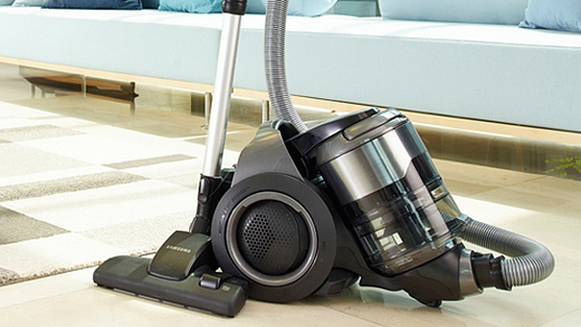
- Published4 September 2015
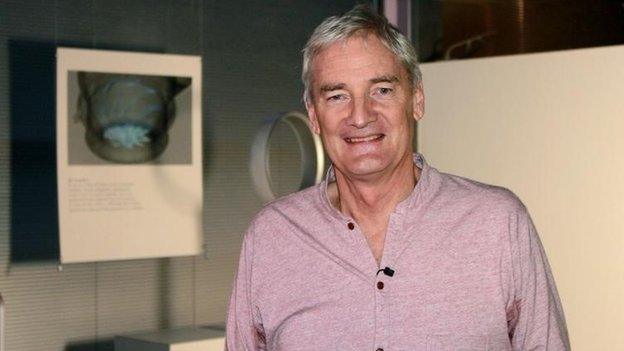
- Published28 October 2015
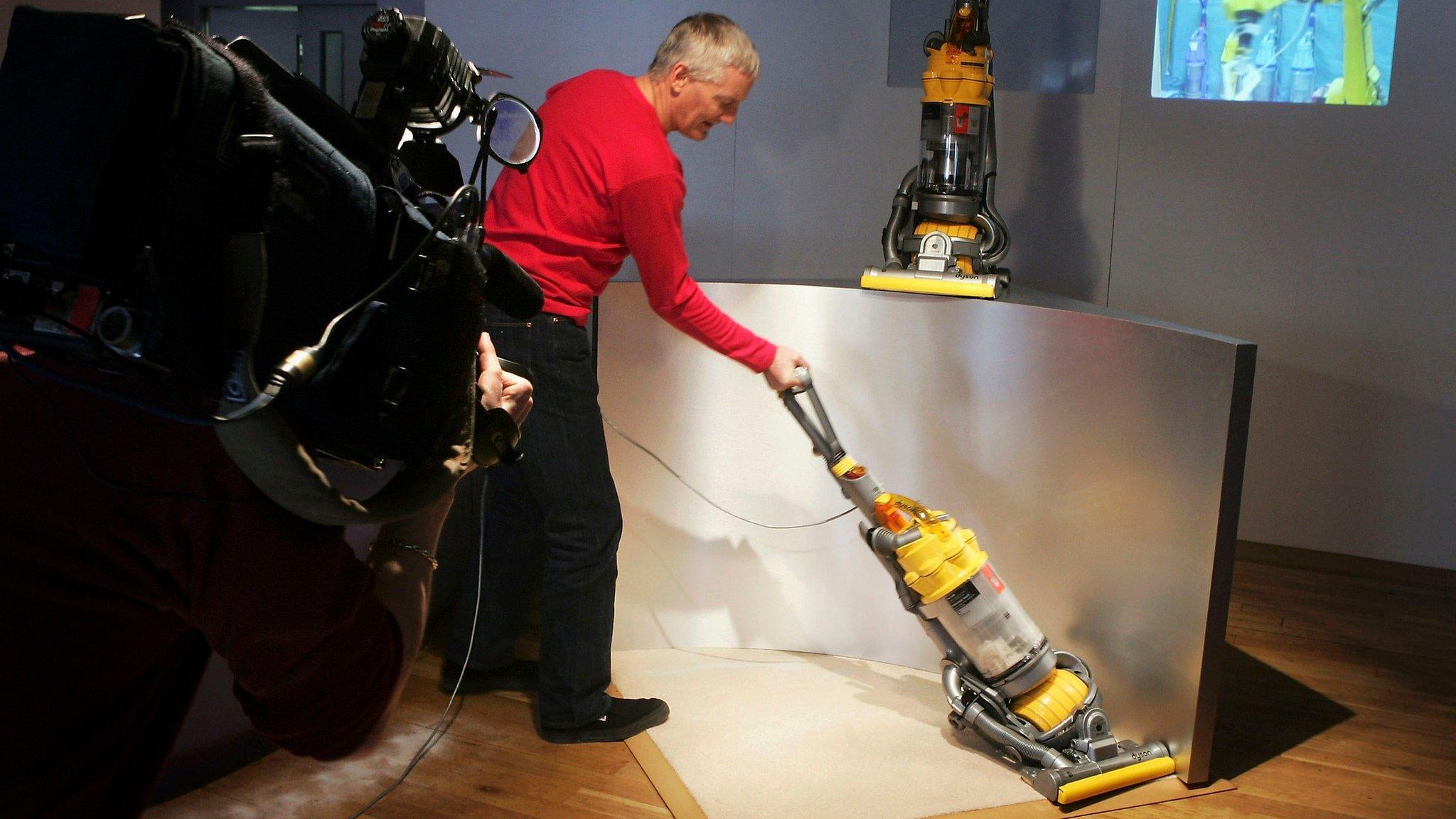
- Published24 October 2012
